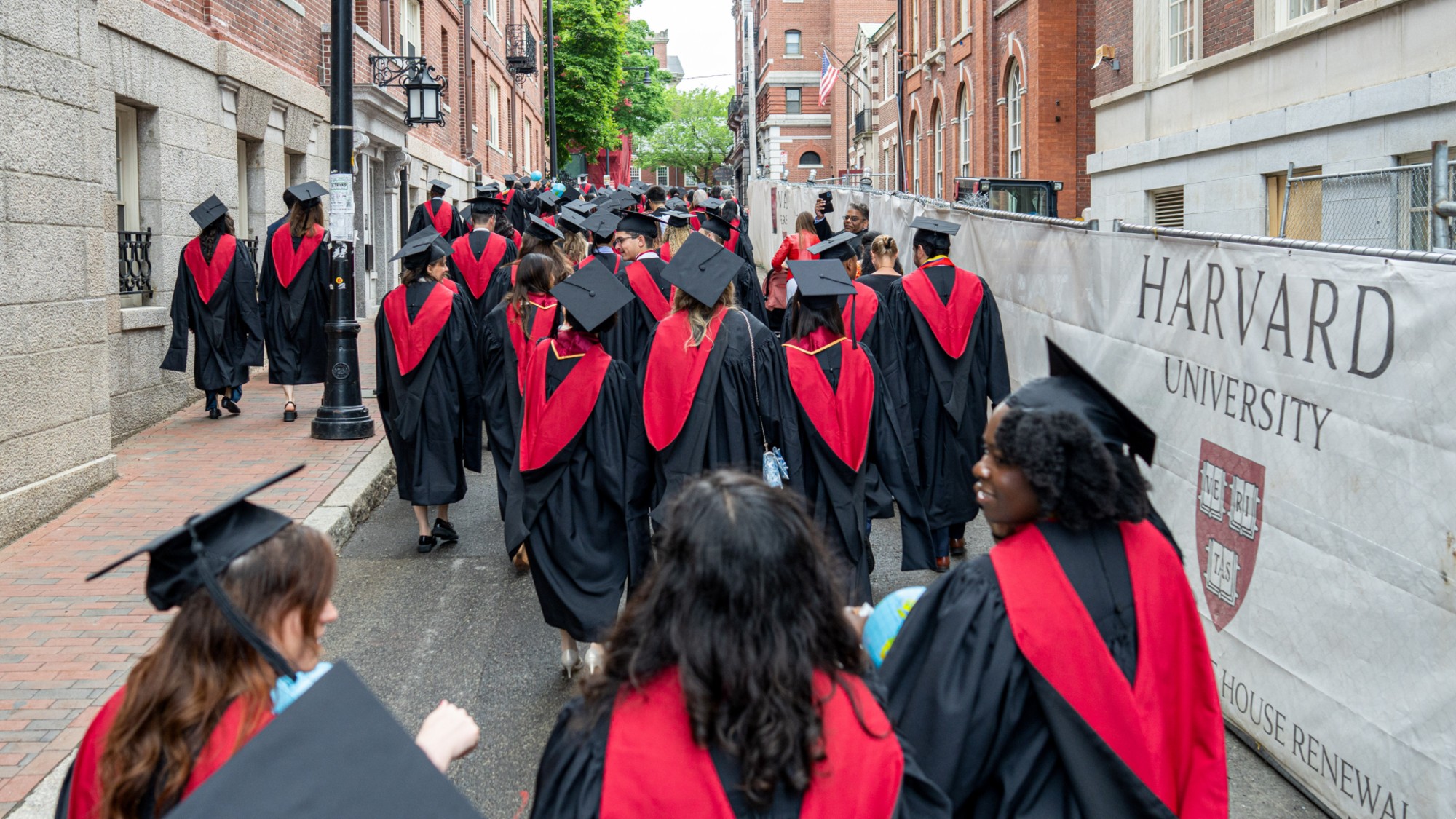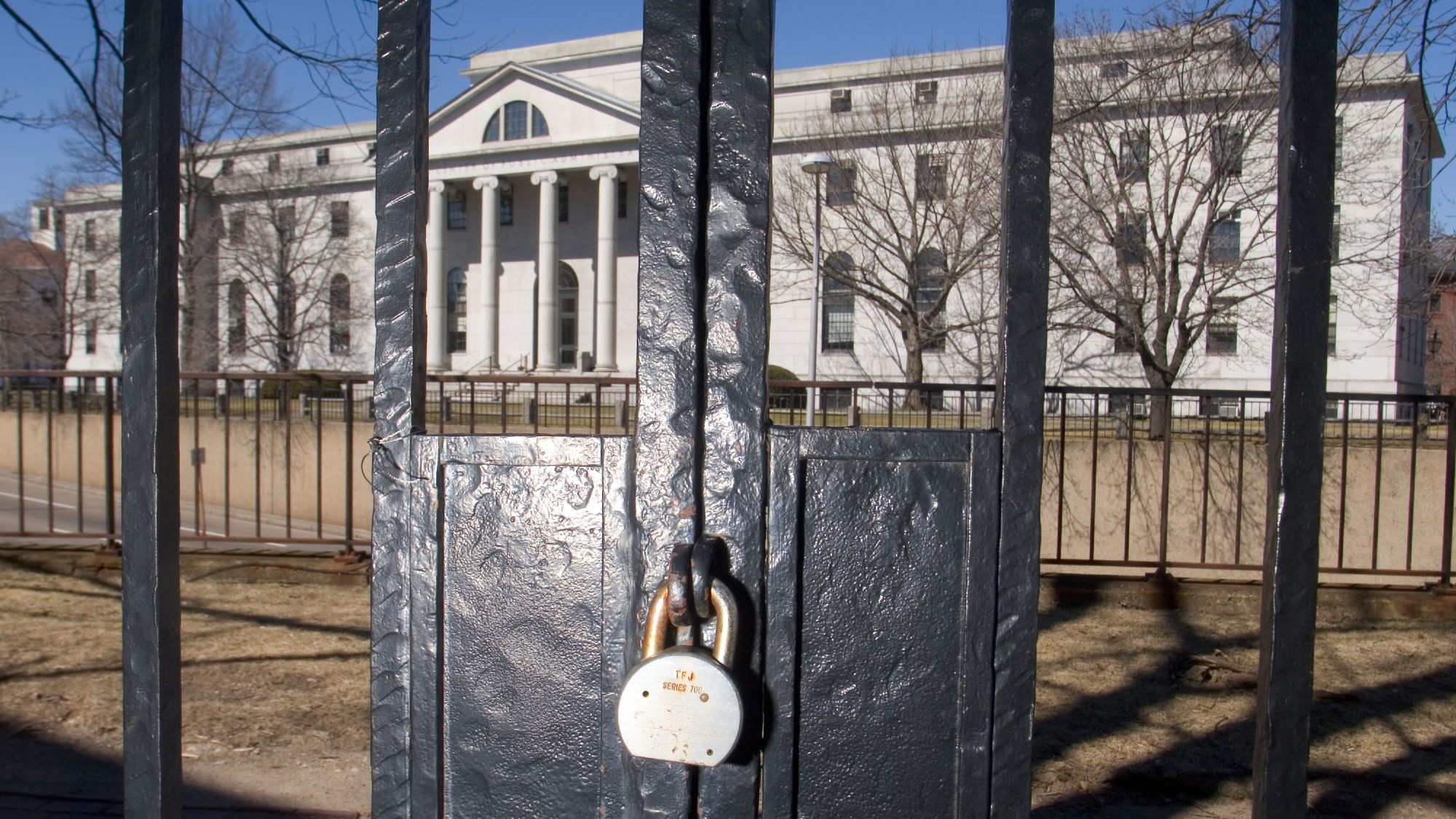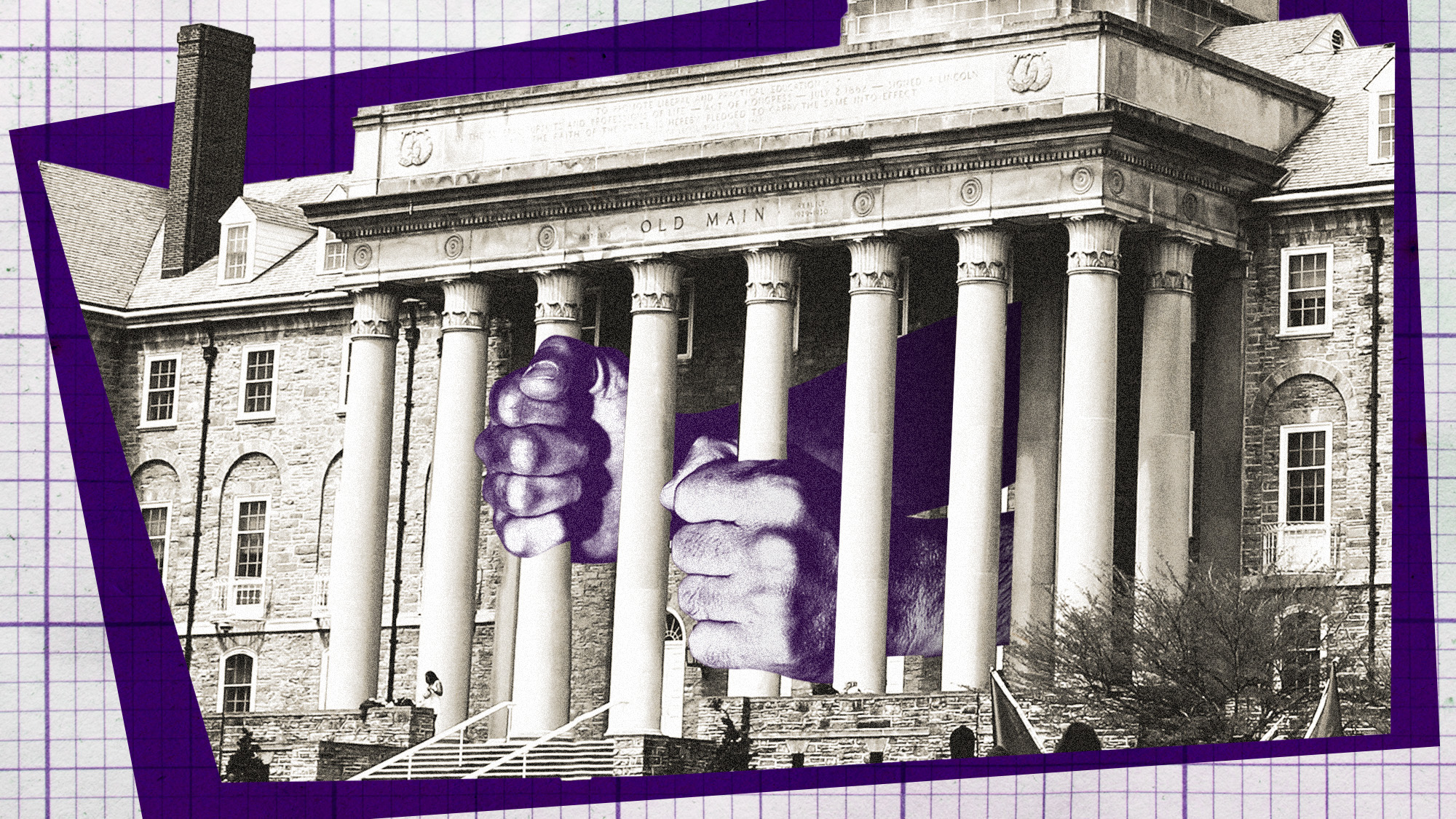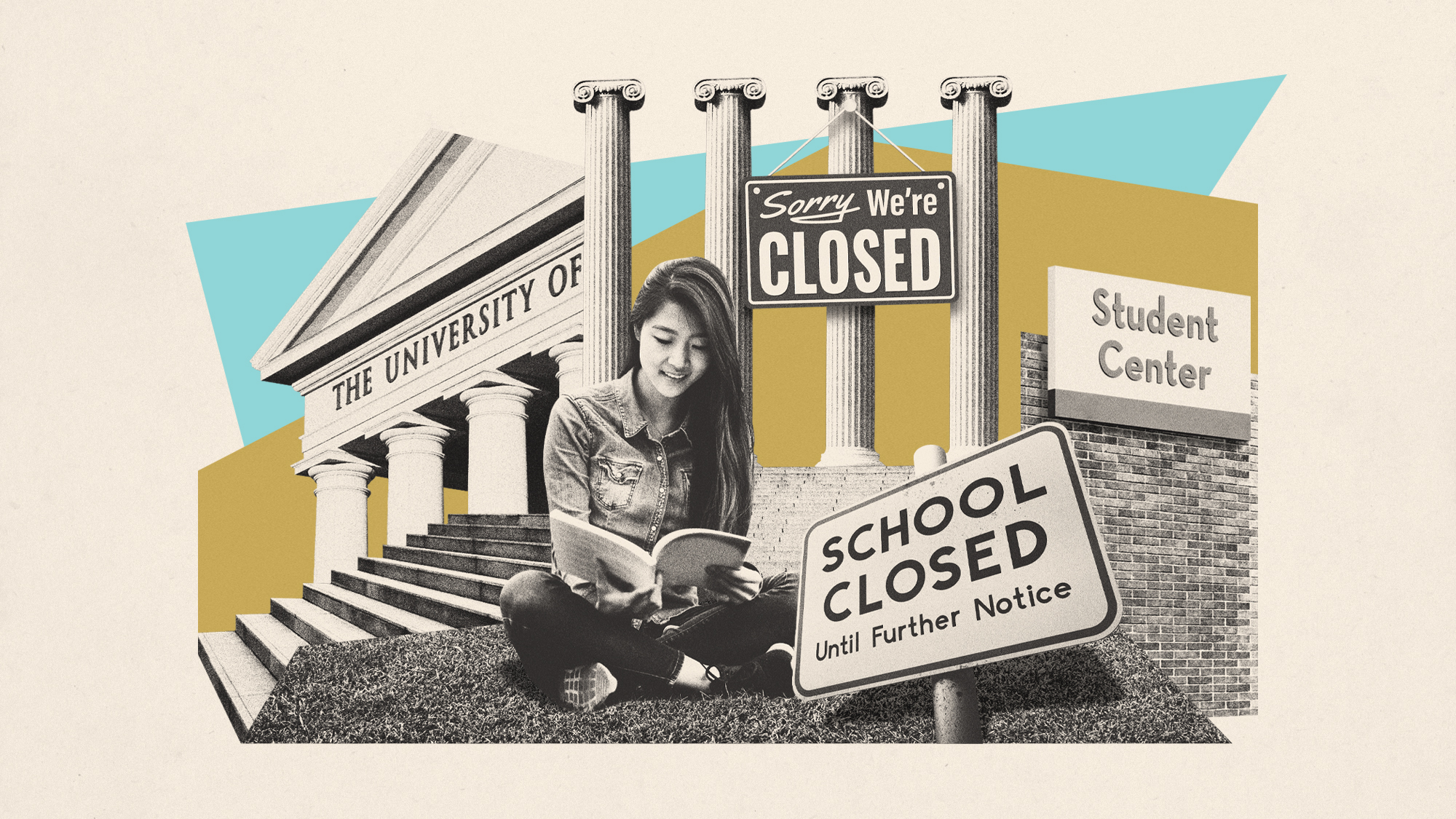Is it time to rethink the value of a university degree?
Critics say record numbers of higher education students not being offered value for money

A free daily email with the biggest news stories of the day – and the best features from TheWeek.com
You are now subscribed
Your newsletter sign-up was successful
Tony Blair said education was the “key to success” as he set a landmark target in 1999 for 50% of UK school-leavers to go to university.
Two decades later, this ambition was finally met, and record numbers of school-leavers have since gone on to accept places on higher education courses.
But concerns have been raised about “a bloated higher education establishment”, said Sky News, and the introduction of – and subsequent increase in – tuition fees have raised questions over whether students are getting value for money.
The Week
Escape your echo chamber. Get the facts behind the news, plus analysis from multiple perspectives.

Sign up for The Week's Free Newsletters
From our morning news briefing to a weekly Good News Newsletter, get the best of The Week delivered directly to your inbox.
From our morning news briefing to a weekly Good News Newsletter, get the best of The Week delivered directly to your inbox.
Are students being ‘misled’?
In 2020, then universities minister Michelle Donelan “launched a scathing attack on universities” for accepting what she considered to be “too many” applicants, said the i news site. Addressing the National Education Opportunities Network, Donelan said that New Labour’s education push had “let down too many young people”.
“Too many have been misled by the expansion of popular-sounding courses with no real demand from the labour market”, she continued. “Quite frankly, our young people have been taken advantage of – particularly those without a family history of going to university. Instead some have been left with the debt of an investment that didn’t pay off in any sense.”
Euan Blair, son of the former PM, has also called Labour’s education policy into question. Speaking to The Telegraph last year, he said that “lots of people” apply to university “simply because they think it is the thing they are supposed to do and that is the route they have heard about through teachers or read about in the media”.
He “wants to change how people approach education entirely by creating rival vocational routes for young people”, said the Financial Times. He founded a start-up company, Multiverse, in 2016, which offers training and professional apprenticeships to young people. It “achieved unicorn status” in June when it was valued at $1.7bn.
A free daily email with the biggest news stories of the day – and the best features from TheWeek.com
Education and employability
Although Tony Blair is reportedly a “big supporter” of Multiverse, he still appears committed to expanding access to higher education. In April his Institute for Global Change set out a new recommendation that 70% of school-leavers should attend university by 2040.
The report concluded that there is evidence of “deficits in high-skilled occupations” and demand for those skills “will only grow” as technology transforms the modern workplace. The authors said: “if the average education level of new workers stagnates, economic growth risks being even more meagre than its current rate”.
Data trends also indicate that a university degree can help boost an individual’s potential future earnings and employability. The Higher Education Statistics Agency published a report last year concluding that, on average, graduates born in 1990 will earn 10% more than non-graduates by the age of 26. University students are also likely to gain “both hard technical or professional skills and soft people-facing communication skills required to succeed in the workplace”, said Times Higher Education.
The Overview
Are university courses offering value for money? Does looking at the bottom line alone take away from the benefits of a university education? And do alternative routes offer better value for young people entering the rapidly evolving labour market?
Nathan Samson, chief executive of The Access Project, John Gill, editor of Times Higher Education, and Elisabeth Barrett, vice president of learning at Multiverse, share their insights on this episode of The Overview podcast.
-
 6 of the world’s most accessible destinations
6 of the world’s most accessible destinationsThe Week Recommends Experience all of Berlin, Singapore and Sydney
-
 How the FCC’s ‘equal time’ rule works
How the FCC’s ‘equal time’ rule worksIn the Spotlight The law is at the heart of the Colbert-CBS conflict
-
 What is the endgame in the DHS shutdown?
What is the endgame in the DHS shutdown?Today’s Big Question Democrats want to rein in ICE’s immigration crackdown
-
 American universities are losing ground to their foreign counterparts
American universities are losing ground to their foreign counterpartsThe Explainer While Harvard is still near the top, other colleges have slipped
-
 Where will international students go if not the US?
Where will international students go if not the US?Talking Points China, Canada and the UK are ready to educate the world
-
 Colleges are canceling affinity graduations amid DEI attacks but students are pressing on
Colleges are canceling affinity graduations amid DEI attacks but students are pressing onIn the Spotlight The commencement at Harvard University was in the news, but other colleges are also taking action
-
 Can Trump ban overseas students from US universities?
Can Trump ban overseas students from US universities?Today's Big Question President's decision to revoke Harvard's access to database for admitting international students 'drastically escalates' the dispute
-
 America's academic brain drain has begun
America's academic brain drain has begunIN THE SPOTLIGHT As the Trump administration targets universities and teachers, educators are eying greener academic pastures elsewhere — and other nations are starting to take notice
-
 Is academic freedom in peril?
Is academic freedom in peril?Today's Big Question Faculty punishments are on the rise
-
 Anti-Israel protests impact a Jewish-rooted university
Anti-Israel protests impact a Jewish-rooted universityThe Explainer The president of Brandeis University resigned as a result of multiple factors, including his handling of recent protests
-
 Why are so many colleges closing?
Why are so many colleges closing?Today's Big Question 'Enrollment cliffs' and higher tuition both play a role